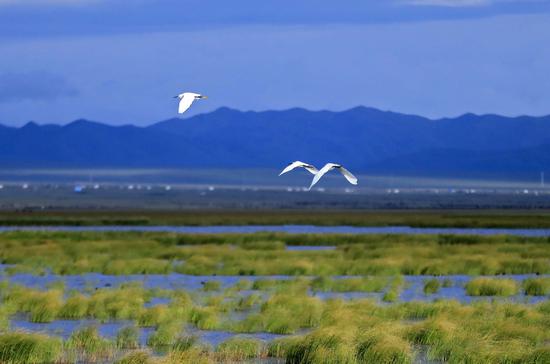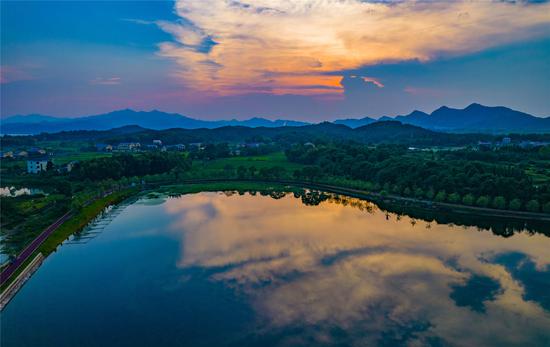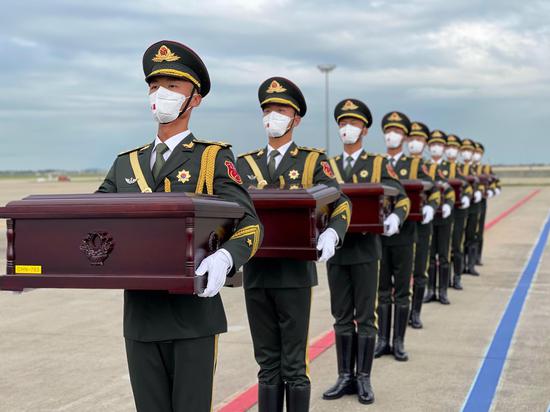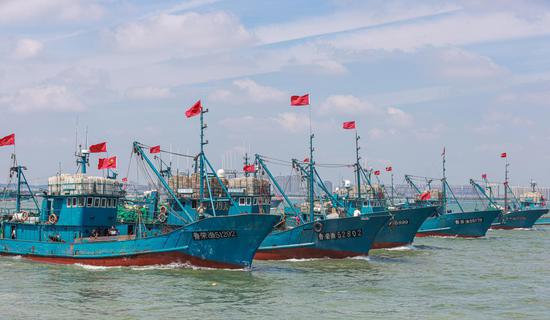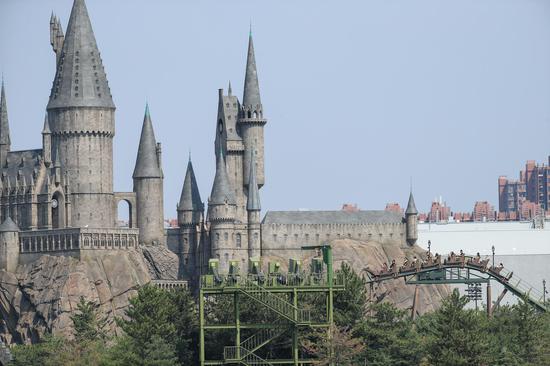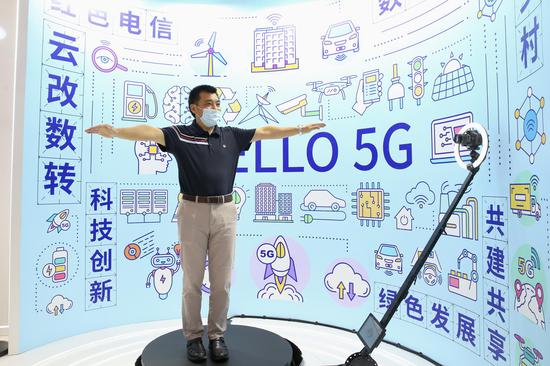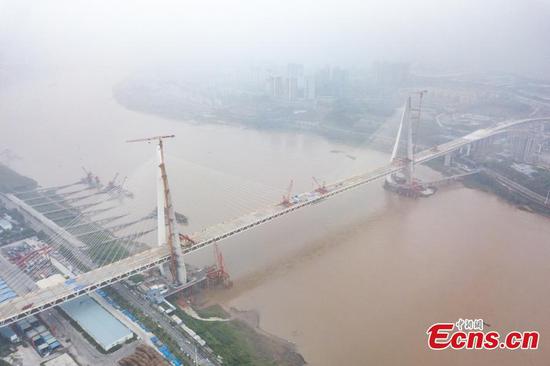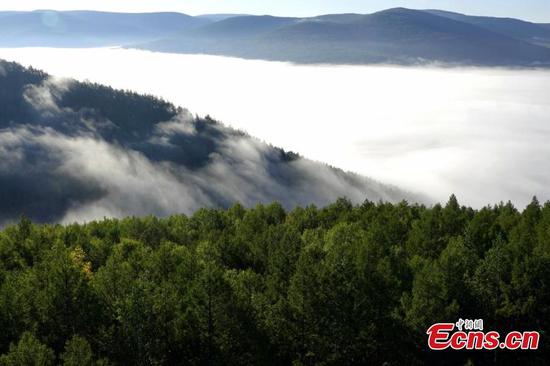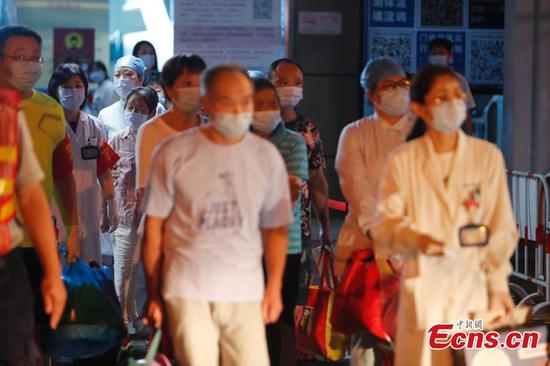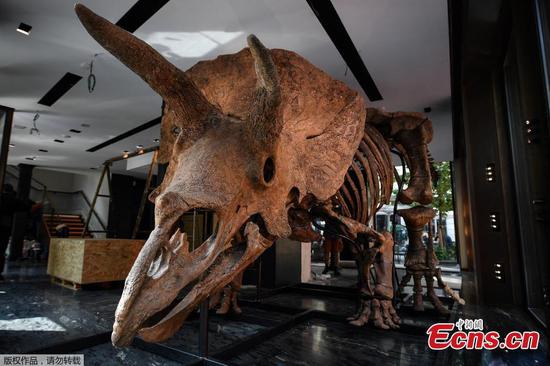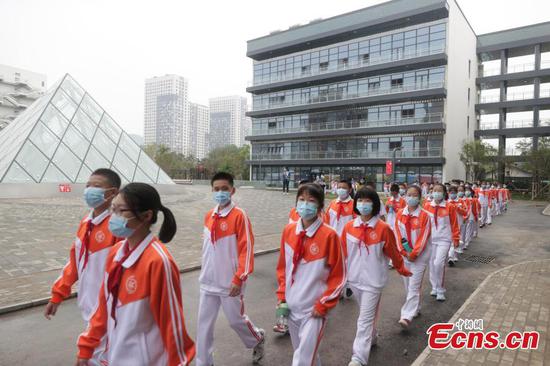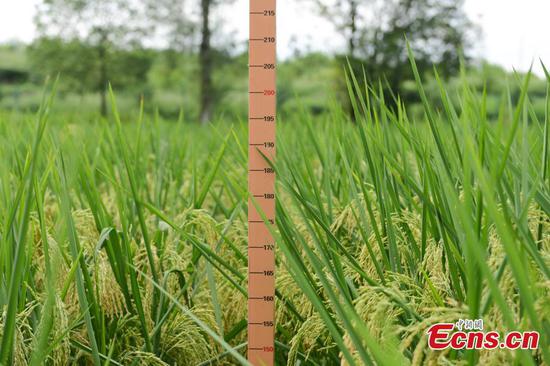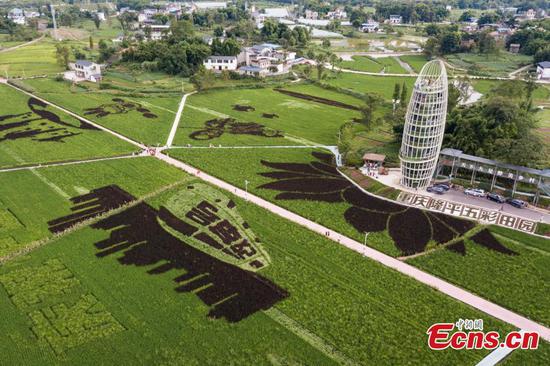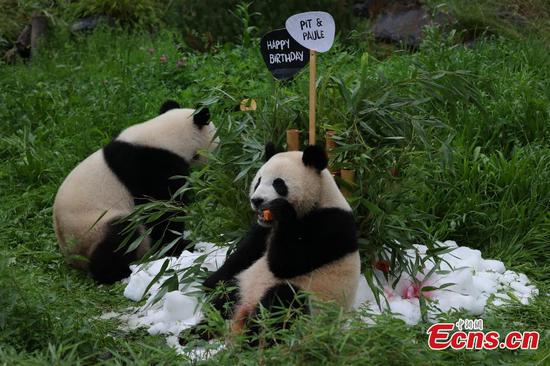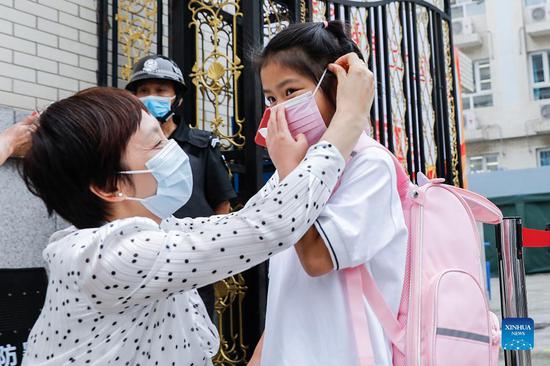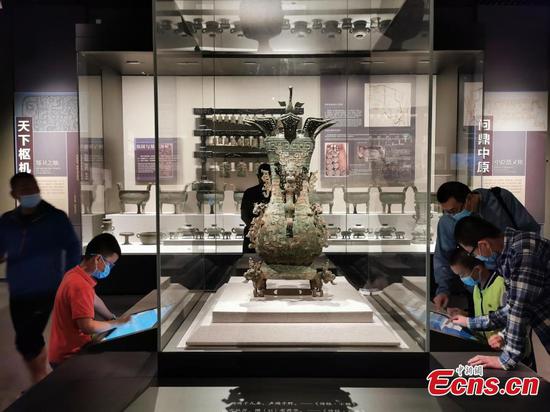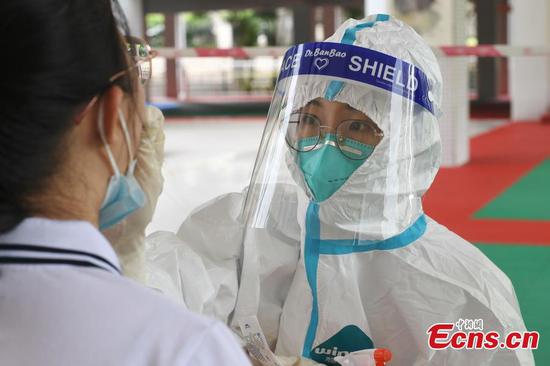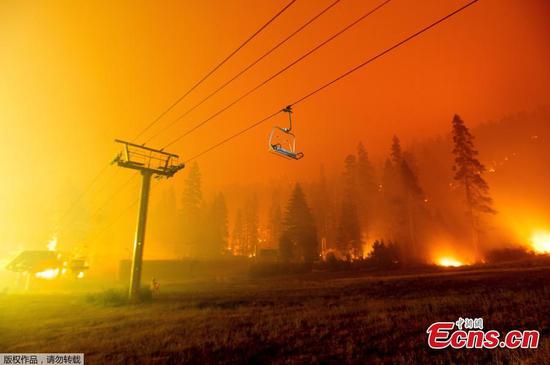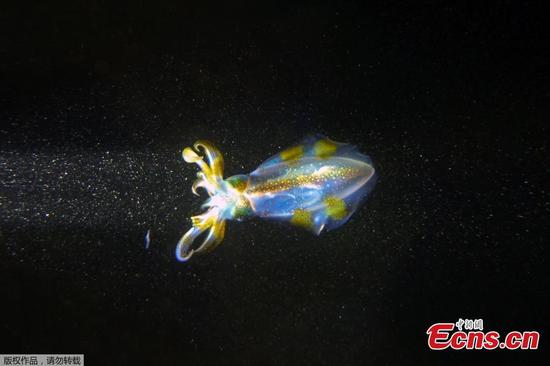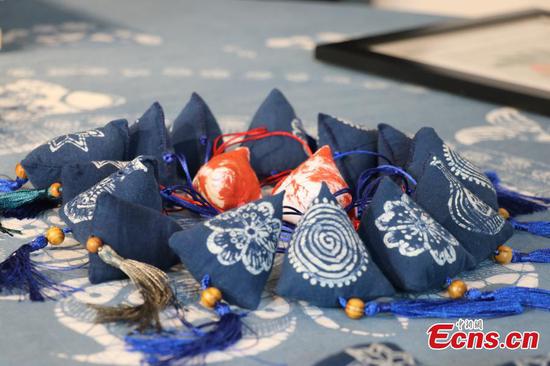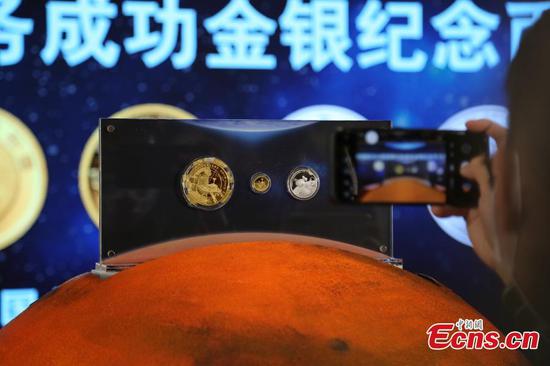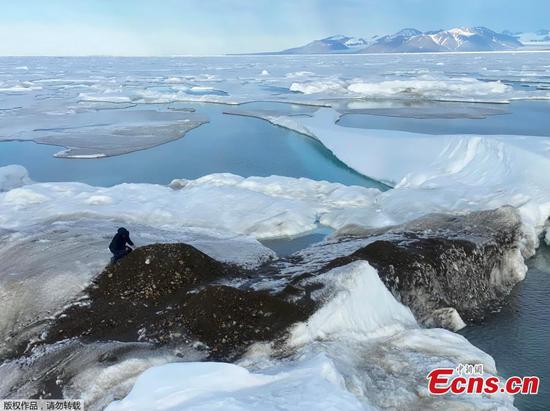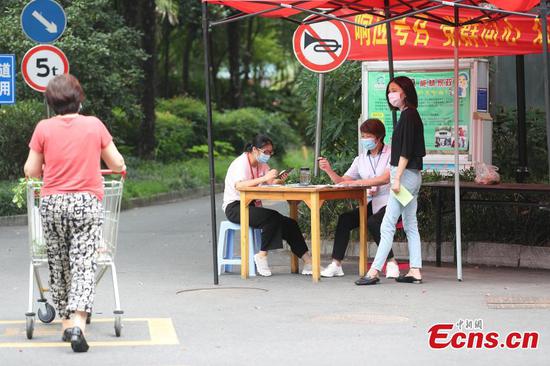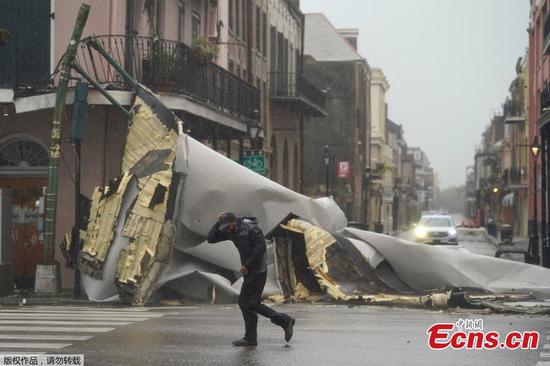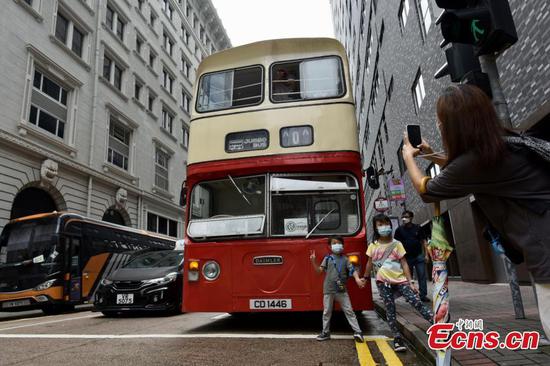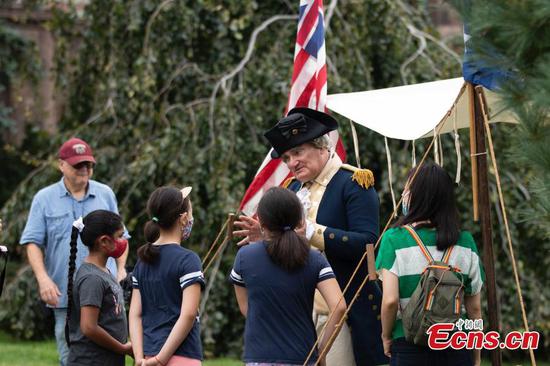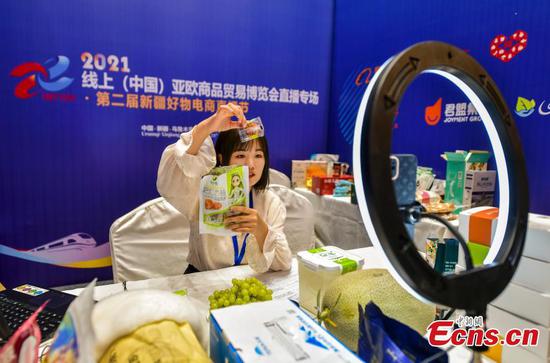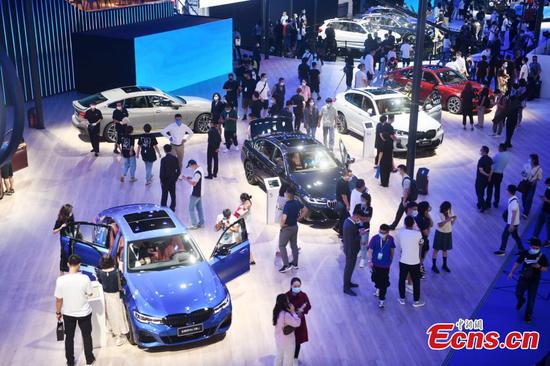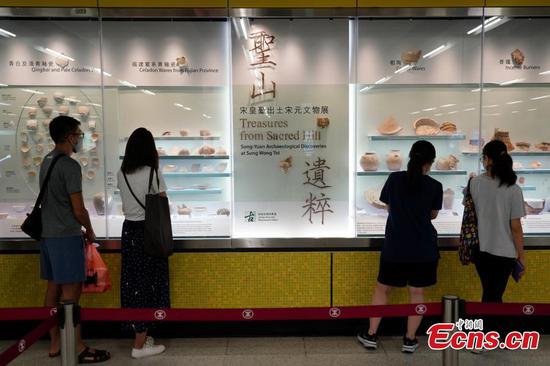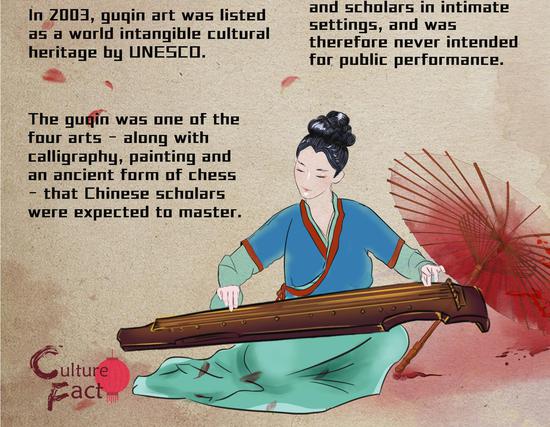The climate issue is an important area of China-U.S. cooperation and must be carried out on the premise of trust, Vice-Premier Han Zheng said when he met with United States Special Presidential Envoy for Climate John Kerry via video link on Thursday.
Han urged the U.S. to create a good atmosphere for cooperation on climate change, adding that China has made great efforts in addressing the challenge and achieved remarkable results.
The targets set by President Xi Jinping for China to peak carbon dioxide emissions before 2030 and achieve carbon neutrality before 2060 reflected China's action and resolve to firmly implement the Paris Agreement and keep strengthening efforts to tackle climate change, Han said.
The goals also showed China is a responsible country that pushes for the building of a community with a shared future for mankind, Han said, adding that China always honors its commitments with actual deeds.
Kerry, who is in Tianjin, is making his second trip to China this year. His previous visit in April was the first to China by a top official of the Biden administration following the meeting between senior Chinese and U.S. officials in Anchorage, Alaska, in March.
The video meeting with Han was one of several meetings Kerry had with senior Chinese officials during his four-day trip, which concludes on Friday. He also talked with Yang Jiechi, director of the Office of the Foreign Affairs Commission of the Communist Party of China Central Committee on Thursday and State Councilor and Foreign Minister Wang Yi on Wednesday, both via video link.
The two senior Chinese diplomats urged the U.S. to correct its mistakes, view China and the China-U.S. relations in an objective and rational way, pursue a reasonable and pragmatic China policy and work with China to push bilateral ties back on the right track at an early date.
Wrongdoings blamed
Yang said that for some time, the China-U.S. relationship has suffered grave difficulties due to a series of U.S. wrongdoings that interfered in China's internal affairs and damaged Chinese interests.
The fundamental reason bilateral ties nose-dived in recent years, Wang said, was because Washington made a major strategic misjudgment on Beijing. What the next move will be is up to the U.S., he said, urging Washington to stop regarding China as a threat and a rival, stop containing and suppressing China around the world and take practical actions to improve bilateral relations.
Yang told Kerry during their video meeting that China has an open attitude toward dialogue and pragmatic cooperation with the U.S. and the two sides could strengthen communication, coordination and cooperation in a wide range of areas, including climate change as well as major international and regional issues.
However, cooperation must be both ways and mutually beneficial, he added.
According to Wang, China-U.S. cooperation on climate change, which is in the interests of both sides and will also benefit the whole of mankind, enjoys broad prospects, but it cannot be separated from the wider environment of bilateral relations.
Though the U.S. side expected the two sides' joint efforts in this area to be an "oasis", the "oasis" would suffer desertification sooner or later if it is surrounded by a "desert", he said, urging the U.S. to meet China half way.
In news releases issued after the meetings, Kerry said the U.S. and China should maintain constructive engagement and jointly deal with global challenges.
While the U.S.-China relationship is crucial for both countries and the world, the United States stands ready to enhance dialogue and cooperation with China with mutual respect, make joint efforts against global warming and to provide new momentum for the two countries to improve their ties, he said.









